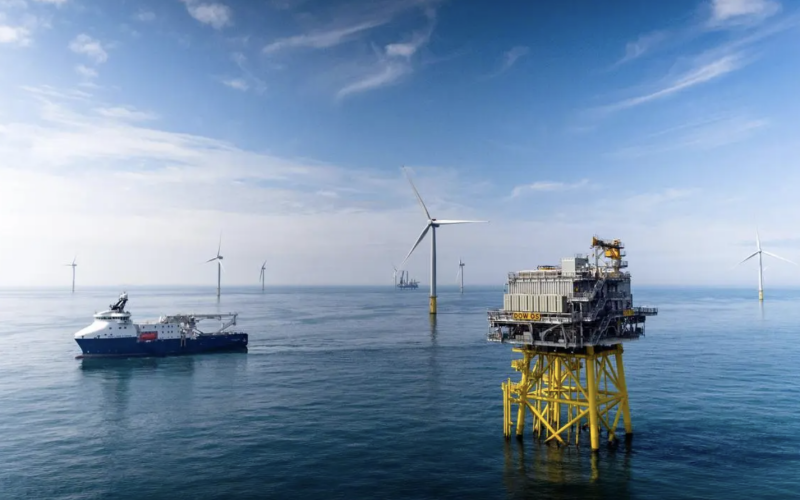New York State power regulators denied petitions by offshore wind developers to charge customers billions of dollars more in future energy sales, a setback that could threaten the viability of four projects and the state’s ambitions for renewable energy sources.
Petitions from developers Ørsted and Eversource for their planned Sunrise Wind project sought a 27 percent in future power prices, while joint venture partners Equinor and BP wanted 54 percent more overall for their Empire Wind 1, Empire Wind 2 and Beacon Wind projects.
In announcing the denial Thursday, the New York State Public Service Commission said it “opted to preserve the robust competitive bidding process that provides critically needed renewable energy resources to New York in the fairest and most cost-effective manner that protects consumers.”
"The commission has repeatedly stated that competition in the procurement process is necessary to protect ratepayers and provides the soundest approach to mobilize the industry to achieve our critical State goals dependably and cost-effectively, and we do so again through today's action,” said commission chair Rory M. Christian.
In its ruling the commission also turned down price increases for 86 land-based renewable energy projects. Granting the requests “outside the competitive procurement process would have resulted in as high as 6.7 percent increases for residential customers and as high as 10.5 percent for commercial or industrial customers,” according to the commission.
Wind power advocates see the decision as major step back for New York’s renewable energy plans, among the most ambitious in the U.S. “Sunrise Wind's viability and therefore ability to be constructed are extremely challenged without this adjustment,” CEO Americas David Hardy told Reuters.
“With one shortsighted decision, the NYSPSC has thrown New York’s environmental and clean energy future into peril,” said Jason Grumet, CEO of the American Clean Power Association.
“Absent a robust offshore wind industry, it will not be possible for New York State to achieve its climate or environmental justice goals. Moreover, critical economic benefits from new manufacturing facilities and the revitalization of ports will be squandered along with the creation of good paying union jobs,” said Grumet. “We urge New York State to maintain its clean energy commitment and reconsider this decision.”
In its statement announcing the decision, the Public Service Commission said it will continue to support state goals for 70 percent of electric load served by renewable energy by 2030 and 9,000 megawatts of offshore wind energy by 2035, “in a manner that preserves competitive procurement processes and ensures utility rates are just and reasonable.”
In reaction to the commission ruling, New York Gov. Kathy Hochul announced a “10-point action plan” to move renewable energy projects forward. Hochul’s list includes a plan for the New York State Energy Research and Development Authority to “assess the impacts (of the commission decision) on its large-scale renewables contracted portfolio in an expedited manner.
“NYSERDA will launch an accelerated renewable energy procurement process for both offshore and onshore renewable energy projects, aiming to backfill any contracted projects which are terminated.”
The New York decision comes after months of escalating tensions over mounting project costs – and the possibility of developers giving up on projects if they see the financing as unsustainable.
New Jersey energy regulators on Wednesday approved an agreement with Ørsted posting a $100 million escrow guarantee that it will build its Ocean Wind 1 project and have it operational in December 2025.
The escrow is part of a deal with Gov. Phil Murphy and state legislators who allowed Ørsted to keep federal renewable energy tax credits that originally were to go to New Jersey energy customers. That additional subsidy was seen as critical to keep Ocean Wind 1 financially viable.
Murphy, Hochul and governors of four other Northeast states in September urged the Biden administration to provide more tax credits and other assistance to help keep their offshore wind projects moving forward. Among other measures, they want to see revenue from federal Bureau of Ocean Energy Management leases shared with adjoining coastal states for the first time.







